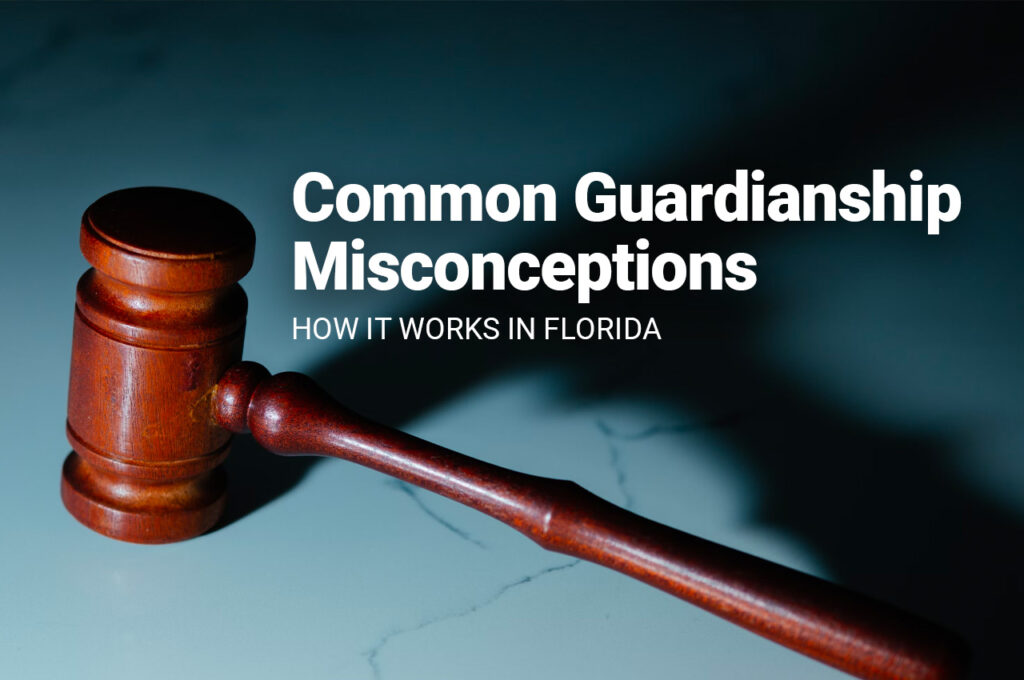Get The Coast spoke to Fleet, Smith & Freeman’s estate planning lawyer, Whitney Smith, about the biggest mistakes parents make when it comes to Estate Planning.
Located in Shalimar, Florida, the attorneys at Fleet, Smith & Freeman have represented clients throughout the Florida Panhandle for more than 60 combined years.
Here’s the biggest mistakes they often see…
1. Failing to Know the Difference Between Will/Trust
To put it simply, a will requires probate, and usually a trust does not. According to Smith, a lot of people say they just want a simple will and not the hassle of a trust without realizing that a will requires you to go to court.
“Going to court is no fun and is very time consuming,” emphasizes Smith.
- A trust will sweep everything into one entity and will not require any court intervention.
“So while a will seems simple, the fact of the matter is, a will creates more problems for the deceased’s descendants as far as getting title and everything transferred over,” explains Smith.
2. Not Putting Things Into Writing
It’s always beneficial to put everything in writing and to make sure you indicate who you want to get what assets.
Smith says that a lot of times parents will put one child on a bank checking account with the assumption that the child knows what to do with the money when the parent passes.
- “When Mom dies, the daughter ends up keeping it all,” said Smith.
When the mother set everything up, her assumption was that the selected child would give part of the money to the siblings, thinking it would be easier to just leave one beneficiary.
“However, a lot of people get greedy and if you give it to one, they’re not inclined to share,” says Smith.
3. Leaving a Mess (Literally!)
A lot of parents keep their belongings, their furniture and their big houses, assuming the children would like to have this stuff when they pass.
- Smith says that many times, children do not care about many of the items in the house, so the parents did not need to keep their big house or have a storage unit until they die on the presumption that the children would want these things.
Smith’s suggestion is to let the children have the benefit of these tangible assets while the parents are living.
“When parents are downsizing and their children come to help move them, whether it’s into an apartment or assisted living facility, that’s a perfect time to purge,” she says.
Declutter, and get rid of stuff so the children who are already having to deal with your death and are grieving do not have to come in and deal with a mess, especially if it’s not something they wish to have.
4. Not Creating a Power of Attorney and Advanced Medical Directive
A power of attorney is a very powerful document where you grant an agent the authority to do certain things, and it’s valid immediately when you sign it. It governs your assets and other things that you can do.
Somebody immediately becomes you, and if you’re going to execute a power of attorney, you should completely trust that person, according to Smith.
“If you don’t have a power of attorney and you become incompetent, then you need a guardianship proceeding because who can answer for you if you don’t have a document in place?” asks Smith. “The court would go through proceedings to declare the person incompetent and appoint somebody to be the guardian of the assets.”
- If you have a power of attorney already in place, that would prevent a guardianship of the assets.
An advanced medical directive is a document that states who you want to make medical decisions in the event you cannot. Without that document, you have a guardianship proceeding where you’re declared incompetent and the judge appoints the guardian of your person.
According to Smith, there are two different kinds of guardians. You can have one being for a person, one being for a property, or you can have the same for both.
Smith says a lot of people don’t realize that a power of attorney expires upon death. Just because a person is their parents’ power of attorney does not mean they can do anything on their behalf after death.
“These two documents could prevent a guardianship proceeding, which is going to court,” said Smith. “That’s not fun and very time consuming and expensive.”
5. Failing to Think of Children’s Needs
Suppose your children are at various ages; let’s say one is 15 and one is 25. If both parents die, you might want to provide more for the 15-year-old rather than splitting it evenly.
“A 15-year-old is going to need more support than the 25-year-old,” explains Smith, “because the 25-year-old presumably has gone through college or trade school. If the parents paid for it, they would probably want to pay for that for the 15-year-old as well. The ages of your children is something you should always consider.”
If you have a special needs child, you can set up a special needs trust to regulate income to the child.
Smith says you may also choose to have a trustee over the child to give them piecemeal money rather than a lump sum.
6. Failing to Analyze Estate Plan Upon Divorce
If you divorce and you have an estate plan in place and you don’t change it, it’s as if the former spouse “predeceased” the other one. They don’t inherit anything.
- Smith says you still need to look at your estate plan and see how things are titled as far as benefit for your children.
“That’s something you always need to reevaluate to make sure the titles are all correct in place,” she says.
As far as changing beneficiaries on life insurance policies, a lot of times when you’re married, you have only the spouse named. When you get divorced, that goes away, so if you die with no beneficiaries, you’ll have probate.
- Smith says to name your children or somebody else as a beneficiary, so it would go to them when you die and not have to go to probate.
7. Fail to Treat Marriage Like a Business (So romantic!)
A marriage is a contractual relationship, and a prenuptial agreement is as well.
According to Smith, especially when it’s a second marriage, people often fail to think about the possibility of divorce, or if one party dies before the other. This is also the case for disproportionate income or disproportionate assets, in the event that things go south.
“You never go into a marriage thinking you’re going to fail,” says Smith. “You never go into a business thinking you’re going to fail either, yet you do bylaws and shareholder agreements all the time in business. You should do it in a marriage as well. That way, you go ahead of it and rather than going to court and a court telling you what you’re going to do, you have things in place.”
Smith says you can draw up a contract before your first marriage too.
“I know plenty of people who wish they would have gotten a contract before their first marriage and did not,” she said. “Hindsight is always 20/20, but it’s a document that can be amended and it can be changed over the course of the marriage.”
Currently married? Smith says you can still draw up a contract.
“It’s called a postnuptial agreement that says we’re already married, here are our assets. In the event something happens, a postnup lays it out.”
8. Realizing How You Title Assets Matters
“It’s always terrible if a parent dies and you’ve got a child in for probate and Dad only had a $10,000 bank account and did not put a beneficiary designation,” says Smith. “To do probate on a $10,000 bank account eats almost the entire amount. Whereas if you would have put Son as the beneficiary, it would avoid probate.“
Smith says she does not advise putting joint owners on accounts or on property.
- If you add a joint owner and then you get into a disagreement with that child, they own it. You can’t remove them.
- If the person you put as a joint owner gets a judgment against them, the courts can come after it because it’s now in that child’s name.
“We always say that title matters, and beneficiaries matter as well,” she says. “The goal is to avoid probate and so that’s something you should always look at. Whether it’s estate planning, asset protection, or any of that…title matters.”
9. Thinking Kids Can Share
It’s all good to say everything is divided 50/50, but when kids get into the personal property, “this is mine, and this is mine” is often the case.
- Smith says that, unfortunately, “children misbehave when their parents both die.”
“The kids would have never acted this way when the parents were alive,” she said. “But if both die, the children get greedy and they all start saying, ‘Well, Mom says this’ and ‘Mom says that,’ and unfortunately, they can’t share.”
Put everything in writing as far as what your intent is.
10. Thinking You Don’t Have Enough Assets to Put a Plan into Place
“It’s not about how many assets you have when we’re talking about the simplest kind of a trust,” says Smith. “Ultimately, it really helps to have things in a concise entity and have direction as far as who gets what and when.”
- It doesn’t have to be immediately upon death, and it avoids probate.
- In the long run, trusts actually save money, but a lot of people just think they don’t have enough assets for trust and don’t want to deal with it tax-wise.
“A lot of people think of a trust as a tax-planning mechanism, and we can do that, but ultimately, a trust helps prevent probate,” added Smith.
The Wrap Up
Fleet, Smith & Freeman does everything from simple wills to sophisticated estate plans.
“We believe in tailoring estate plans to meet the unique needs of each client,” she added. “That is why we don’t take a cookie-cutter approach to estate planning. Instead, each estate plan we draft is just as unique as you are!.”
Contact the Fort Walton Beach estate planning attorneys of Fleet, Smith & Freeman, for help with all of your estate planning needs. Call their office at 850-651-4006.





